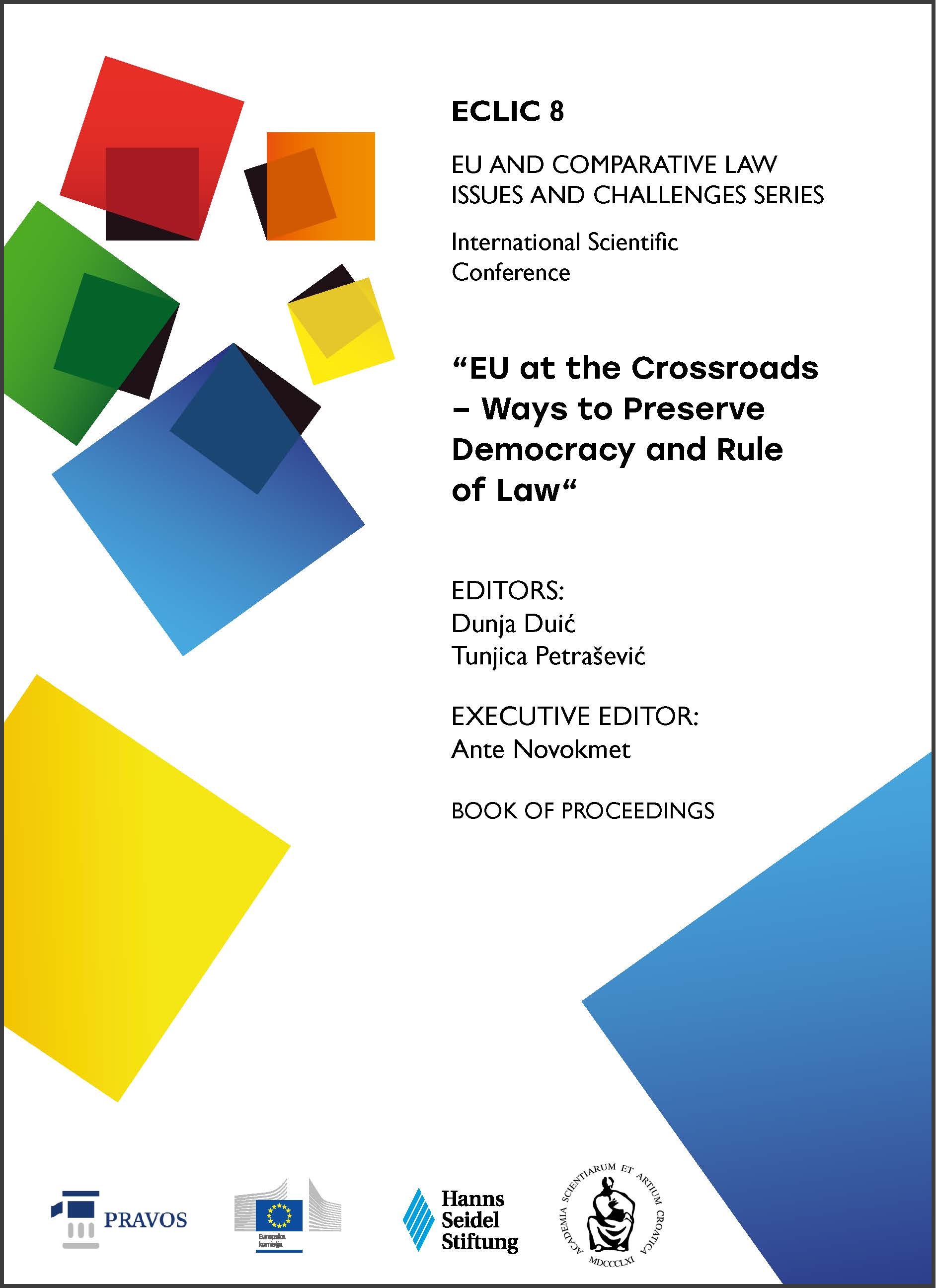BETWEEN GEOPOLITICS AND LEGAL OBLIGATIONS
THE EU AND THE CONTINUATION OF THE NORMALIZATION PROCESS BETWEEN BELGRADE AND PRIŠTINA
DOI:
https://doi.org/10.25234/eclic/32295Abstract
The article deals with the challenges in the implementation of the Agreement on the path to normalization of relations between Kosovo and Serbia signed on February 27, 2022, and its Implementation Annex from March 2022. There has been no significant application of these documents so far, in addition to the similar lackluster fate of numerous other documents concluded in the normalization process. Therefore, the authors argue that the EU’s image of the mediator in the process, intending to bring democracy and rule of law through these agreements to both parties, is increasingly brought into question.
In relation to this, the first part of the article explains how the European Union, in the context of its policy of conditionality, increasingly exerts significant influence on Belgrade to accelerate this process. The opening of new clusters according to the Union's new methodology concerning Serbia depends on the continuation and acceleration of this process, which is now an integral part of its negotiation framework (Chapter 35). Similarly, for Kosovo, within the broader framework of conditions for future candidate status and future membership negotiations, this question of the successful normalization of relations with Belgrade is a priority. Also, in the New Growth Plan for the Western Balkans presented in November, the withdrawal of significant financial resources by the authorities in Belgrade and Pristina will depend on the further dynamics of the implementation of all previous agreements between the two parties, especially the last year's Agreement on the path to normalization of relations between Kosovo and Serbia. This Agreement was primarily the result of the joint initiative of Germany and France, with significant diplomatic support from the United States of America.
The second part of the article deals with the issue of the legality of such EU actions. The authors argue that despite a certain objective inability to accelerate the implementation process of all the agreements reached during the thirteen-year normalization process, the European Union can condition Belgrade and Pristina regarding additional donor funds—that is, an investment and financial aid package—in line with the fact that the parties themselves have accepted and committed to it. Simultaneously, through this Agreement, in principle, the parties committed in Article 5 to harmonize their foreign policy actions with the EU's Common Foreign and Security Policy, which is particularly important for Serbia.
In conclusion, the authors point out that the EU credibility in the Western Balkans will largely depend on the successful implementation of everything agreed in the dialogue between Belgrade and Pristina. As noted in the Agreement, the issue of these relations is fundamental and closely connected to the context of broader European security. The European Union has assumed a dominant role in implementing all agreed-upon aspects between Belgrade and Pristina, thereby leaving a realistic possibility that there could be serious consequences for their EU accession process and the financial aid they are expected to receive.
Downloads
Published
How to Cite
Issue
Section
License
Copyright (c) 2024 Dragan Đukanović, Mihajlo Vučić

This work is licensed under a Creative Commons Attribution-NonCommercial 4.0 International License.
Authors retain the copyright on the papers published in the Journal, but grant the right of first publication to the Journal. Papers accepted for publication or already published in ECLIC of the Faculty of Law in Osijek may be published by the author(s) in other publications only with proper notice of its previous publication in ECLIC.


